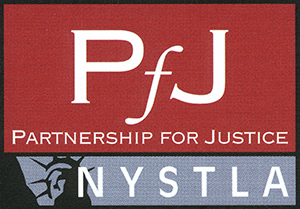The Differences Between Chapter 7 and 13 Bankruptcy
Posted on October 16th, 2019 by Oddo & Babat, P.C.
Chapter 7 and Chapter 13 Bankruptcy
Bankruptcy is a legal option for people to discharge their debts. When you feel like you are drowning in debt, there are resources for you to utilize. Some people fear bankruptcy, but the truth is that it can help you immensely. When deciding on taking the bankruptcy route, you will often have to choose between Chapter 7 and Chapter 13. How do you know which is best? Here are some of the differences between the two to help you decide.
Chapter 7 Bankruptcy
Chapter 7 bankruptcy discharges your debt so that you no longer have to pay it back. Once you file for bankruptcy, debt collectors are no longer allowed to call you and harass you. When you file for Chapter 7 bankruptcy, the creditors cannot collect money from you, call you, or continue to garnish your wages. In addition, they are not allowed to file a lawsuit. With Chapter 13, you can lose your assets. If you have extra property, vehicles, or luxury items, you could lose them. Of course, one benefit is that you will relieve your debts faster. Between Chapter 7 and 13, Chapter 7 is a quicker option. It will usually take from 90 to 100 days for the whole ordeal to be finished. When it comes to filing Chapter 7, your credit score will take a big hit, but you can always rebuild it.
Chapter 13 Bankruptcy
Chapter 13 bankruptcy is a great option for those who want to keep property or assets. People with higher incomes may have to file for Chapter 13. With Chapter 13, you receive help repaying your debts. You may even get to consolidate your debt into one monthly payment. Unlike Chapter 7, Chapter 13 takes quite a bit longer and may take you from three to five years to pay off your debts. With Chapter 13 bankruptcy you have to stick to a repayment plan, but in this kind of bankruptcy, you do not take as hard of a hit on your credit score. While it stays on your report for seven years after the filing date, lenders appreciate it more than they do when they see someone filed for Chapter 7.
The two types of bankruptcy are very different. What you decide depends heavily on your needs and your circumstances. It is normal not to be sure which bankruptcy to file for when you’ve never experienced bankruptcy before. Fortunately, if you can set up a consultation with a bankruptcy lawyer, like a Chapter 13 bankruptcy lawyer in Kankakee, IL, to find out which option is better for you.
Thanks to Pioletti Pioletti & Nichols for their insight into the differences between Chapter 7 and Chapter 13 bankruptcy.


 I consulted with David the first time a couple of years ago on a serious matter that affected a very close member of my family. Not expecting a good experience from this serious situation coupled with an attorney consultation, the entire thing surprised me as it was pleasant, professional, and completely successful. We found him clear, direct, generous and extremely knowledgeable throughout the process. I give my very strongest recommendation
I consulted with David the first time a couple of years ago on a serious matter that affected a very close member of my family. Not expecting a good experience from this serious situation coupled with an attorney consultation, the entire thing surprised me as it was pleasant, professional, and completely successful. We found him clear, direct, generous and extremely knowledgeable throughout the process. I give my very strongest recommendation








